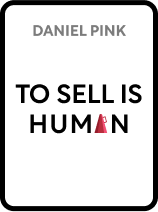

This article is an excerpt from the Shortform book guide to "To Sell Is Human" by Daniel H. Pink. Shortform has the world's best summaries and analyses of books you should be reading.
Like this article? Sign up for a free trial here .
What does it mean to sell experiences? Why do people identify more with experiences than material goods?
Sales specialist Daniel Pink says that you should always try to get buyers excited about the experience of using a product rather than about the product itself. This is due to a number of factors, including the fact that experiences are easier to relate to and that customers are motivated by emotions.
Here is why you should sell experiences, not products.
Sell Experiences, Not Products
One way to help create focus for buyers is to get them excited about the experience of using the product or service rather than its practical features. You should sell experiences because people identify more with experiences than material goods because, unlike practical or material products, experiences can be talked about and shared with others.
For example, let’s say you’re trying to sell a customer a basketball for their son’s graduation party, but the customer is not sure she needs one. You can help the customer develop focus by describing how the basketball might be used to enhance the party. You might describe how basketball can help to create an experience of community and entertainment for partygoers. The customer might realize that is exactly the experience she wants partygoers to have, and with that clarity, decide to purchase the basketball.
Why Is Selling Experiences More Effective Than Selling Products?
Experiences often resonate more than products because:
Customers are motivated to buy by their emotions. Research shows that 90% of sales decisions are made subconsciously. We are, on the surface, seeking a product or service, but we are really paying more attention to how that product or service makes us feel. For example, you might go to a specific coffee shop regularly, not because the coffee tastes good, but because the employees treat you warmly.
Experiences are easier to relate to. You can discuss details of a product or service (for example, “with this cellular device you get 250 GB of storage space”), but you’ll connect more meaningfully with your buyer if you emphasize your experience with it (for example, “I have a passion for photography, so having the largest storage option on my phone allows me to hold onto all those memories”). According to research, only the language processing center of the brain is activated when people hear factual details, but more parts of the brain are activated when they also consider experiences.
Modern buyers care more about what they do than about what they own. Material possessions used to be a symbol of status, but have lost importance in recent years, partly due to the attitudes of millennials (72% prefer experiences to products), but the change applies to all age groups.

———End of Preview———
Like what you just read? Read the rest of the world's best book summary and analysis of Daniel H. Pink's "To Sell Is Human" at Shortform .
Here's what you'll find in our full To Sell Is Human summary :
- Why we are all salespeople in the modern world
- The history, evolution, and significance of sales
- How you can effectively harness sales skills to create purpose, growth, or “movement” in your life






